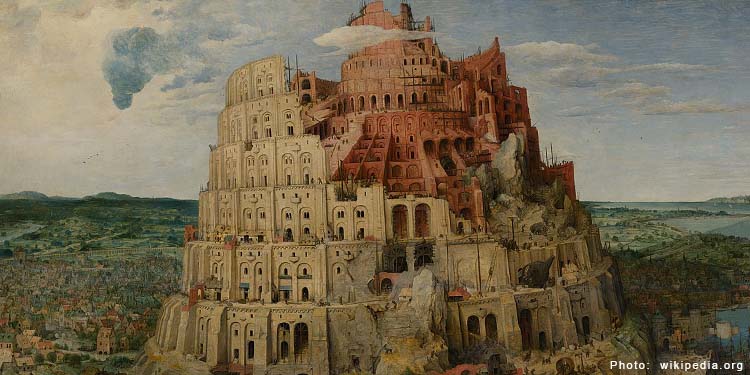Making a Unique Contribution
Yael Eckstein | October 7, 2021

Now the whole world had one language and a common speech… That is why it was called Babel—because there the LORD confused the language of the whole world. From there the LORD scattered them over the face of the whole earth. — Genesis 11:1, 9
Each week in synagogue, Jews read through the Torah from Genesis to Deuteronomy. The Torah portion for this week is Noach, from the name of the main character, Noah. It is from Genesis 6:9–11:32.
There is an old tale about a Jewish community in a Middle Eastern country hundreds of years ago.
The sultan decided that he only wanted Muslims living in his country — which meant that all the Jews living there had to flee, convert, or be killed. The Jews panicked and sent their chief rabbi to plead with the sultan to revoke the decree.
The wise rabbi approached the sultan and announced that he had brought a gift on behalf of the Jewish community. He laid out two rugs in front of him. One was a beautiful oriental carpet with many colors, patterns, birds, animals, and flowers. The other rug was plain red. The rabbi told the sultan that he could have whichever carpet he thought was nicer.
The sultan became enraged and said to the rabbi: “How insulting! The colorful rug is obviously more beautiful than the plain one. Do you think I’m a fool?” The rabbi calmly replied: “Certainly not! Which is why I am certain that you also prefer an empire full of many shades of people, not just all the same kind.”
And with that, the Jews were saved.
Making a Unique Contribution
God created many different types of people. He created us with a vast array of tastes, abilities, and inclinations. If God wanted us all to be the same, He would have created us all the same. Each of us has a unique soul, created in the image of God. God wants us to make our unique contribution to the world.
We see this lesson in this week’s Torah portion. The generation of the Tower of Babel was a society in which everyone spoke and thought exactly alike. God saw that this was dangerous. His solution was to “confuse their language.” In other words, God forced them to think differently so that they would go their separate ways. This way, humanity could progress as the vast tapestry that it was meant to be.
This is the difference between unity and sameness. Sameness means that our human agency and creativity are absent. Sameness is a form of oppression. Unity is people who think differently coming together, each bringing the unique contribution that they have to offer.
Your Turn:
What makes you unique? How can you use your special gifts in the service of God and your community?
